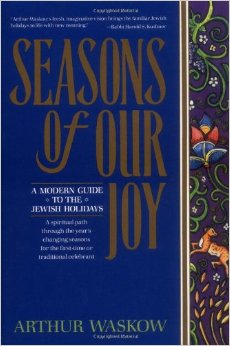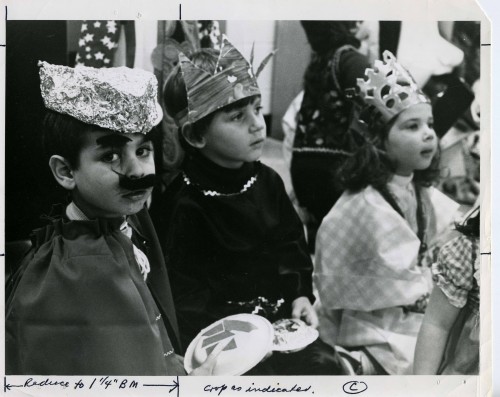Mouth full of hamentaschen, heart full of bravery
A blog post by Associate Director Tracie Guy-Decker. Read more posts from Tracie by clicking HERE.
Whenever I find myself blogging about a Jewish holiday (whether volunteer or voluntold), I always start with Seasons of Our Joy by Baltimore-native Arthur Waskow.
When I reviewed that go-to text on Purim, I was struck by this passage on page 118:
“The custom grew of making Purim-Torah—parodying the prayers themselves on Purim night, parodying the rabbis’ Talmudic debates and discussions over how to apply Torah to life-dilemmas.”
And then a few pages later, Waskow writes that in some congregations, after the megillah is read, a “Purim-rabbi—a mock rabbi chosen for the occasion—might give a sermon that pokes fun at established traditions and institutions.”
This idea of a Purim-authority who is a parody of authority, really struck me. In this season of American electoral politics, I suddenly realized that I am waiting for the Purim-candidates to yield the stage to the real candidates. They’re not going anywhere.

Large wooden gragger (noisemaker for Purim), made from solid wood pieces, c. 1900. This gragger was found in the basement of a Highlandtown rowhouse on Fairmont Ave. JMM 1999.162.1
But that’s one of the points that Purim makes, isn’t it? It’s the holiday on which we are commanded to get so drunk that we cannot discern the difference between “blessed be Mordechai” and “cursed be Haman.” But maybe the drunkenness is necessary only to get us to drop our inhibitions that create the difference in the first place. Maybe the equality is always there for us to see, if only we could (indeed, Rabbi Waskow points out that using gematria, the two phrases are equivalent).
And see it we must, as a later passage made plain to me:
When the original history happened, the sublime liberation of Exodus came long before the farce of Purim. But when we finish living that history and begin to learn it, absorb it into our lives, digest it so that we can make a holy future, then it may be important for us to laugh first, to let the farce come first. For power is funny, and those who hold power are ridiculous. The first stage of liberation is that we learn to laugh at them.
But power is also profound, and liberation is also at the root of all the universe. Having learned to laugh, we become ready to seek our freedom seriously. There is a time laugh—and then there is a time to ask questions. (page 127)
Today, for Purim, we eat and we drink to excess. We poke fun at everything—especially authority. And Rabbi Waskow is right. If we can see the ridiculousness in authority, we can hope to challenge it when it oversteps its bounds. And so, with my mouth full of the taste of hamentaschen, wine, and laughter, I for one, am looking ahead to what will be needed to stand up to Pharoah, to choose right over comfort, and to leave my mitzrayim, my narrow place. I am putting on the costume of Esther’s bravery not to pretend to be something I am not, but to practice being something I know I am.
And so, dear friends, I leave you with this blessing: may we all use the foolishness of Purim to uncover the righteousness that is already in the world and in us, waiting to be exalted, and may “the memory of Purim never cease from among us.”
Purim Sameach!


